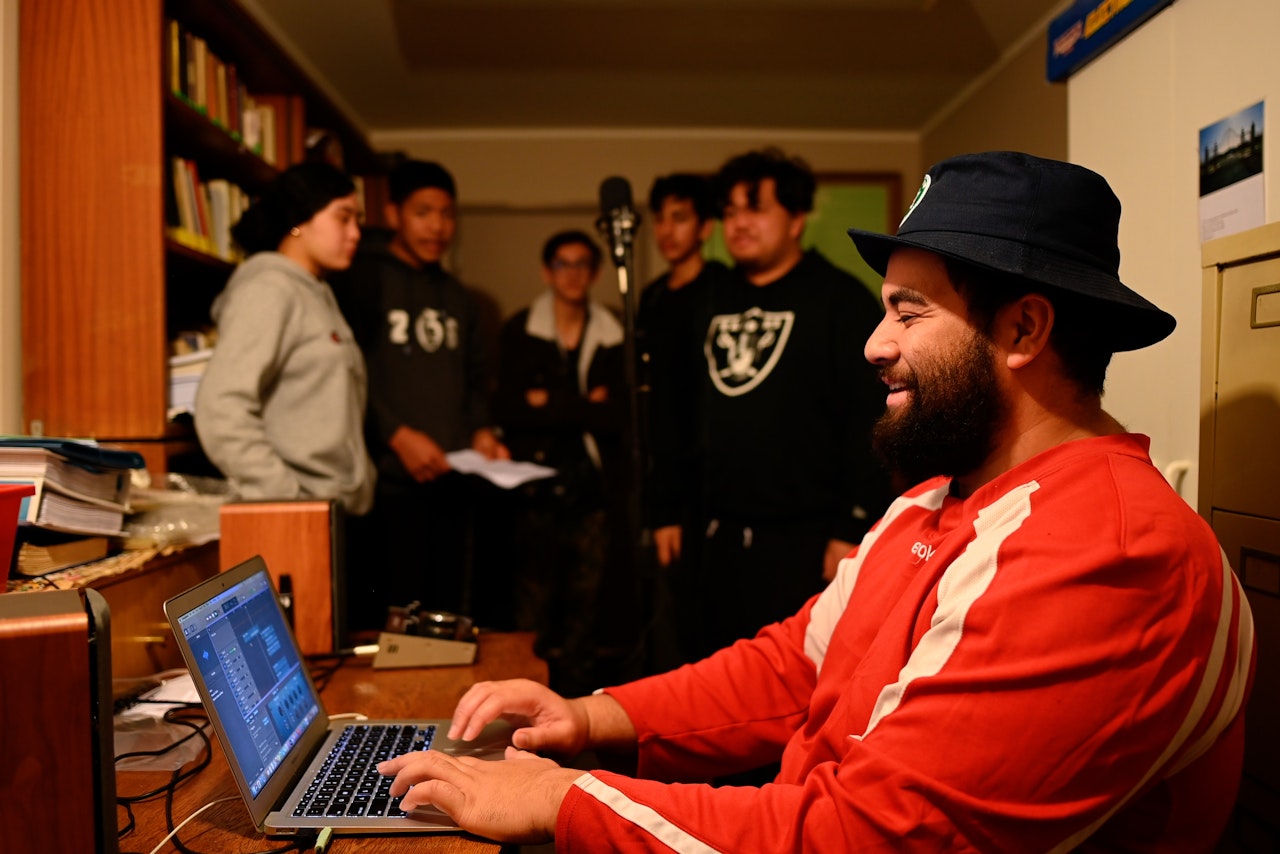New Zealand
A movement of youth inspires socially conscious music
Youth engaged in Bahá’í community-building efforts are inspiring their peers with music that responds to social issues heightened during the pandemic.

Youth engaged in Bahá’í community-building efforts are inspiring their peers with music that responds to social issues heightened during the pandemic.

AUCKLAND, New Zealand — In the Manurewa neighborhood of Auckland, New Zealand, some youth are turning to music to cast light on issues that have come to the fore during the pandemic, while providing a positive outlook based on their experiences in Bahá’í community-building efforts.
“Music is a really big part of young people’s lives here in our neighborhood,” says Jeffrey Sabour, one of the facilitators of the community-building activities. “Over 1,000 people in Manurewa are a part of this movement that contributes to social change, so we began by asking ‘how can we extend insights from these efforts to even more people through music?’ And ‘how can we write about profound ideas in a way where people can relate to the story of the song?’”
In a song titled “We Are All Connected,” the youth call attention to how the pandemic has highlighted the human capacity for recognizing oneness. The song uses the metaphor of the human body to describe the interdependence of humanity, with a line that reads: “Every man for himself is the assumption, but a cell on its own cannot function.”
Fia Sakopo, another youth from Manurewa, explains that service to society has been the underlying theme in all the songs, stating: “Accepting the oneness and interconnectedness of humankind requires a profound change in our thinking. But noble thoughts in themselves aren’t enough.
“They need to be translated into action. Selfless service to our fellow human beings is a natural expression of the belief in the oneness of humanity. This truth has to be constantly shown through deeds.”
Jeffrey describes how these songs are intended to inspire action by relating spiritual concepts to issues facing their own social reality, providing a refreshing contrast to a sea of music marketed to youth that tends to convey a tone of hopelessness and focusses on, for example, heartbreak or the pursuit of material satisfactions.
“The youth of Manurewa engaged in this process are very conscious of the challenges of their society, and they want to impart the same sense of hope they have cultivated in their community-building activities through songs that deal with themes such as collective solidarity, the pursuit of knowledge and education, and the material and spiritual dimensions of true prosperity.”
Fia elaborates further, describing the approach to creating these songs: “Many people from the neighborhood are exploring these and many other concepts together as they take action. Along the way, we ask questions to draw out insights, then have more discussions, and eventually try to come up with a song that speaks to people’s concerns.
“When people hear these songs, they hear their voice in them.”
Music created as part of the “Manurewa Arts Project” can be found here.